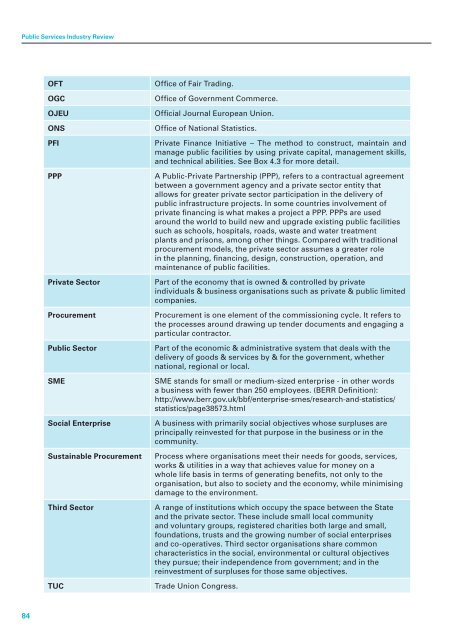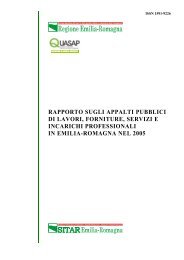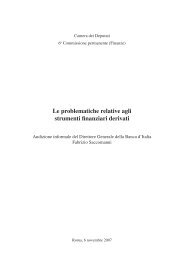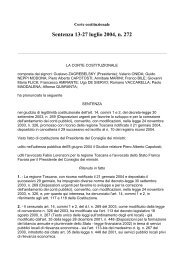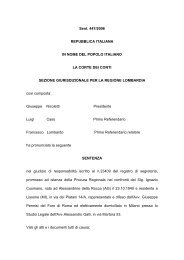Understanding the Public Services Industy
Understanding the Public Services Industy
Understanding the Public Services Industy
Create successful ePaper yourself
Turn your PDF publications into a flip-book with our unique Google optimized e-Paper software.
<strong>Public</strong> <strong>Services</strong> Industry Review<br />
OFT<br />
OGC<br />
OJEU<br />
ONS<br />
PFI<br />
PPP<br />
Private Sector<br />
Procurement<br />
<strong>Public</strong> Sector<br />
SME<br />
Social Enterprise<br />
Sustainable Procurement<br />
Third Sector<br />
TUC<br />
Office of Fair Trading.<br />
Office of Government Commerce.<br />
Official Journal European Union.<br />
Office of National Statistics.<br />
Private Finance Initiative – The method to construct, maintain and<br />
manage public facilities by using private capital, management skills,<br />
and technical abilities. See Box 4.3 for more detail.<br />
A <strong>Public</strong>-Private Partnership (PPP), refers to a contractual agreement<br />
between a government agency and a private sector entity that<br />
allows for greater private sector participation in <strong>the</strong> delivery of<br />
public infrastructure projects. In some countries involvement of<br />
private financing is what makes a project a PPP. PPPs are used<br />
around <strong>the</strong> world to build new and upgrade existing public facilities<br />
such as schools, hospitals, roads, waste and water treatment<br />
plants and prisons, among o<strong>the</strong>r things. Compared with traditional<br />
procurement models, <strong>the</strong> private sector assumes a greater role<br />
in <strong>the</strong> planning, financing, design, construction, operation, and<br />
maintenance of public facilities.<br />
Part of <strong>the</strong> economy that is owned & controlled by private<br />
individuals & business organisations such as private & public limited<br />
companies.<br />
Procurement is one element of <strong>the</strong> commissioning cycle. It refers to<br />
<strong>the</strong> processes around drawing up tender documents and engaging a<br />
particular contractor.<br />
Part of <strong>the</strong> economic & administrative system that deals with <strong>the</strong><br />
delivery of goods & services by & for <strong>the</strong> government, whe<strong>the</strong>r<br />
national, regional or local.<br />
SME stands for small or medium-sized enterprise - in o<strong>the</strong>r words<br />
a business with fewer than 250 employees. (BERR Definition):<br />
http://www.berr.gov.uk/bbf/enterprise-smes/research-and-statistics/<br />
statistics/page38573.html<br />
A business with primarily social objectives whose surpluses are<br />
principally reinvested for that purpose in <strong>the</strong> business or in <strong>the</strong><br />
community.<br />
Process where organisations meet <strong>the</strong>ir needs for goods, services,<br />
works & utilities in a way that achieves value for money on a<br />
whole life basis in terms of generating benefits, not only to <strong>the</strong><br />
organisation, but also to society and <strong>the</strong> economy, while minimising<br />
damage to <strong>the</strong> environment.<br />
A range of institutions which occupy <strong>the</strong> space between <strong>the</strong> State<br />
and <strong>the</strong> private sector. These include small local community<br />
and voluntary groups, registered charities both large and small,<br />
foundations, trusts and <strong>the</strong> growing number of social enterprises<br />
and co-operatives. Third sector organisations share common<br />
characteristics in <strong>the</strong> social, environmental or cultural objectives<br />
<strong>the</strong>y pursue; <strong>the</strong>ir independence from government; and in <strong>the</strong><br />
reinvestment of surpluses for those same objectives.<br />
Trade Union Congress.<br />
84


